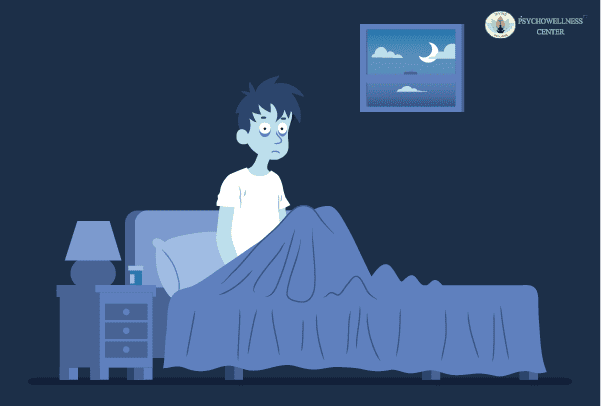Let’s face it: in today’s hectic world, sleep often feels like a luxury we can’t afford. Between work, social lives, and endless to-do lists, many of us skimp on those precious hours of rest. If you wake up feeling groggy or rely heavily on coffee to make it through the day, it might be time to take a closer look at your sleep habits. Here are five common reasons why your sleep might not be enough—and how to tackle them.
1. Quality Over Quantity
You might think you’re doing great if you’re getting seven or eight hours of sleep. But the truth is, that sleep quality matters just as much as sleep quantity. It’s not just about how long you’re in bed; it’s about whether you’re getting restorative sleep.
What Affects Sleep Quality?
Several factors can play a role, including:
- Sleep Disorders: Issues like insomnia or sleep apnea can disrupt your sleep cycle, preventing you from reaching deeper sleep stages.
- Environment: Noise, excessive light, or a room that’s too hot or cold can interfere with sleep.
- Tech Time: Late-night scrolling or binge-watching can suppress melatonin production, making it harder to fall asleep.
What to Do:
Evaluate your sleep environment. Try blackout curtains, a white noise machine, or earplugs to minimize disturbances. Set aside screens at least an hour before bed to allow your body to wind down naturally.
2. Chronic Stress and Anxiety
Stress and anxiety are common culprits of poor sleep in today’s fast-paced world. When your mind is racing with worries, it’s tough to relax and drift off.
How Stress Impacts Sleep:
- Hormonal Changes: Stress increases cortisol, which keeps you alert instead of allowing you to relax.
- Mind Racing: Anxiety can heighten mental activity, making it hard to shut off your thoughts at night.
What to Do:
Engage in relaxation practices such as yoga, meditation, or deep breathing. Writing in a journal before bed can help you clear your head. For chronic issues, consider cognitive-behavioral therapy (CBT), which is highly effective for managing anxiety and improving sleep habits.
3. Unhealthy Lifestyle Choices
Your daily habits play a huge role in your sleep health. Poor nutrition, lack of exercise, and irregular sleep schedules can all contribute to restless nights.
How Lifestyle Affects Sleep:
- Diet: Consuming heavy meals, caffeine, or alcohol close to bedtime can interfere with your natural sleep cycle.
- Exercise: While exercise can promote better sleep, working out too late may keep you awake.
- Inconsistent Patterns: Going to bed and waking up at different times disrupts your body’s internal clock, leading to poor sleep.
What to Do:
Opt for a balanced diet with sleep-friendly foods like nuts, whole grains, and fatty fish. Finish exercise sessions at least 3–4 hours before bedtime. Maintain a consistent sleep routine to control your internal clock.
4. Medical Conditions and Medications
Sleep issues can often stem from underlying medical conditions or the medications used to treat them.
Conditions to Consider:
- Chronic Pain: Conditions like arthritis or fibromyalgia can make it difficult to sleep comfortably.
- Mental Health Issues: Depression, anxiety, and other conditions often disrupt sleep.
- Medication Side Effects: Some medications for physical or mental health issues may affect sleep patterns.
What to Do:
If you suspect a medical condition or medication is affecting your sleep, consult a healthcare professional. Treatments like CBT, mindfulness, adjustments, or lifestyle changes can improve both physical and mental health, ultimately enhancing sleep quality.
5. Overcommitting Yourself
With packed schedules, sleep often takes a backseat. This can lead to burnout and further compromise your physical and mental well-being.
Consequences of Overcommitment:
- Burnout: Constant busyness leaves little room for recovery, leading to exhaustion.
- Skipping Sleep: Many sacrifice rest to accommodate work, family, or social obligations.
What to Do:
Learn to say no to non-essential commitments. Delegate tasks, prioritize, and carve out downtime for yourself. Protecting your sleep schedule is vital for maintaining energy and focus.
Conclusion
Recognizing why you’re not getting enough sleep is the first step toward better rest. By addressing stress, anxiety, and depression, improving sleep quality, adopting healthier habits, and tackling underlying health issues, you can transform your sleep and overall well-being. Remember, sleep isn’t just a luxury—it’s essential for mental and physical health. Prioritize it, and you’ll likely feel more energized, less socially isolated, and better equipped to handle the day.
Many people struggle with sleep but they often do not realize that the quality of their sleep matters just as much as the quantity. Even if you sleep for eight hours you might still feel tired if your sleep is disrupted or not restful. Stress anxiety and other mental health issues can greatly affect how well you sleep at night. Seeking help from professional therapists can provide you with strategies to improve your sleep and overall well-being. Virtual therapy provides an accessible option to engage with a skilled Best psychologist who can assist you in discovering improved sleep strategies.
Visit the Psychowellness Center for mental health support in Delhi Janakpuri, and Palm. Delhi NCR, Access online counseling with the best psychologists now.
Contribution:- – Ms. Riya Rathi, counseling psychologist, and Dr. R K Suri, acclaimed clinical psychologist and life coach, offer their valuable insights at TalktoAngel, committed to your mental well-being.
References
- Roth, T., et al. (2015). “The impact of sleep disorders on health-related quality of life.” Journal of Clinical Sleep Medicine, 11(2), 202-210.
- St-Onge, M. P., et al. (2016). “Metabolic Consequences of Sleep and Sleep Loss.” Sleep Medicine Clinics, 11(1), 23-36.
- Walker, A. (2017). Why We Sleep: Unlocking the Power of Sleep and Dreams. Scribner

